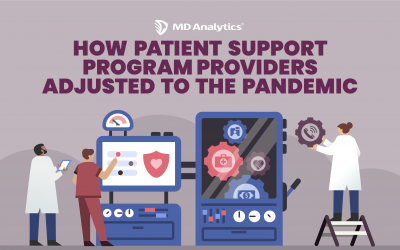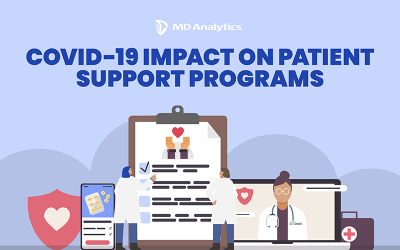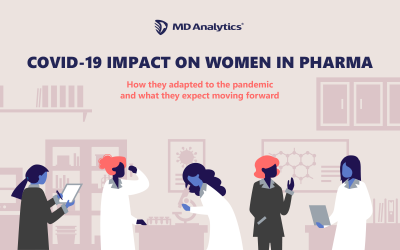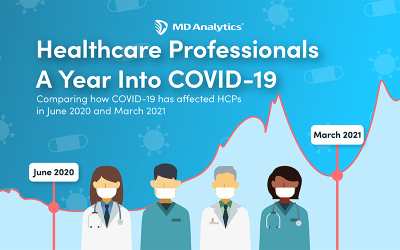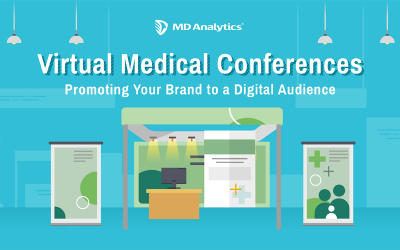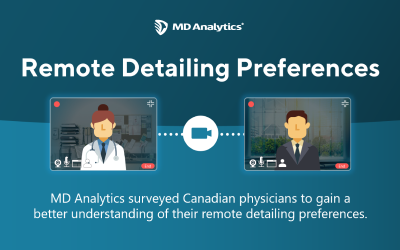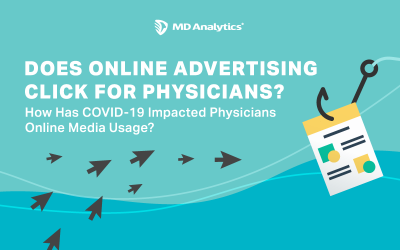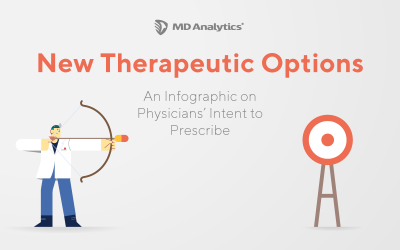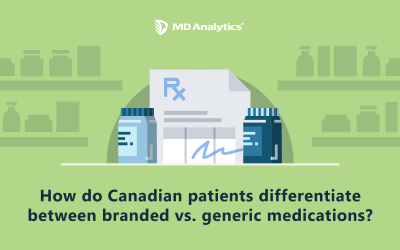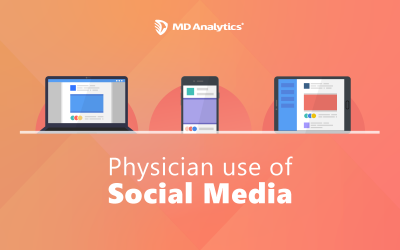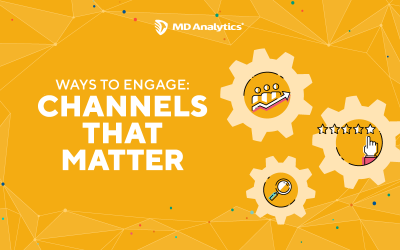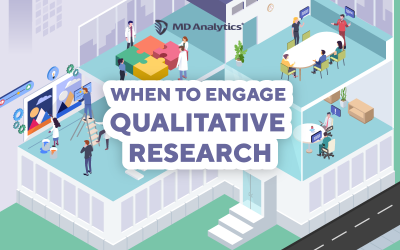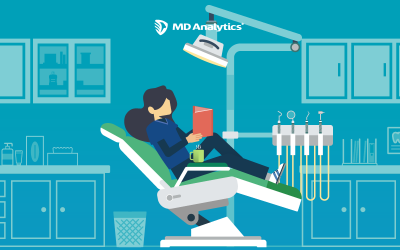Physicians feel positive about how Patient Support Programs (PSPs) have evolved in the past two years – especially in terms of responsiveness and the expertise of individuals working on PSPs. The main unmet needs at this time remain the range of service hours and the availabilityof nurses remotely (either by phone or virtually). Many specialists believe that biosimilar PSP providers have struggled more than originator drug PSPs since the onset of the pandemic – mainly because of they do not have as many employees and offer a smaller range of services.
COVID-19 Impact on Patient Support Programs
Patient Support Programs (PSPs) play a significant role in ensuring that patients have the best possible experience during their journey – especially in specialty therapeutic areas where treatments tend to be more expensive. The COVID-19 pandemic has made it more challenging for patients to access support and services for their medical conditions. This has put additional pressure on company-sponsored PSPs to further enhance their offerings to help patients in the best way possible. PSPs have become increasingly important for patients since the onset of the COVID-19 pandemic and as a result now have an even more significant influence on physicians’ treatment selection process.
Virtual Interactions With Pharma Are Here To Stay
While the vaccination campaign in Canada has shown positive progress, the COVID-19 pandemic continues to significantly impact the way in which HCPs interact with both patients and pharma. MD Analytics has been monitoring these trends over the past year and we are excited to share with you our 4th wave infographic on this topic.
For the first time since initiating this tracking study, patient volumes have returned back to pre-pandemic conditions, as have key measures such are diagnostic tests performed and treatment switches. It is important to note that while most physicians feel that their workloads are now similar to pre-COVID conditions, many expect to exceed their current levels in the coming months.
COVID-19 Impact on Women in Pharma
The COVID-19 crisis changed the way people work across industries including the pharma industry. MD Analytics teamed up with the professional association for women in the pharma industry Women Leaders in Pharma to conduct a study on the impact on of COVID-19 on women who work in the pharma industry.
Pandemic’s Impact on HCPs Practices and Vaccination Campaign Perceptions
The COVID-19 vaccination campaign is underway in Canada. However, the pandemic has significantly altered HCPs’ practices to date. These changes have impacted workloads, patient assessments, and interactions with pharma. A year into the pandemic, a national COVID-19 vaccination campaign is underway. This begs the question, how are Canadian HCPs doing today? What do they foresee moving forward? Our latest short survey presents the current state of HCPs’ practices in Canada and their assessment of the government’s management of COVID-19.
Virtual Medical Conferences – Promoting your brand to a digital audience
Virtual medical conferences are on the rise, but are they here to stay?
As a result of the pandemic over the past year, conference organizers and medical brands were set scrambling to find a solution to limit cancelations of key medical conferences. Resulting virtual platforms advanced quickly to emulate the face-to-face conference experience through a digital means. While many virtual medical conferences were successful, in terms of strong participation levels to many key events both national and international, questions remained as to how well they met the needs of physicians, other healthcare providers and the pharmaceutical and medical device companies sponsoring these events.
Remote Detailing for Pharma – Physicians’ perspectives
Our 5-minute online survey conducted in the fall of 2020 sought to gain clarity around remote detailing. This study was conducted with 339 Canadian physicians who are members of the MD Analytics healthcare panel and the results provide actionable recommendations on how to form a more ‘ideal’ pharma remote detail.
Does Online Advertising Click for Physicians?
Strong online advertising and messaging are key to maximizing impact of any marketing campaign. With recent restrictions on in-person interactions, online advertising and messaging play an even greater role in reaching physicians. Our findings from a survey of n=227 Canadian physicians show that 82% of Canadian physicians have increased their use of online platforms as a result of COVID-19, 48% significantly so.
Forecasting New Pharma Products – Improving accuracy
Physicians recognize that new medications often can be quite valuable for their patients and are eager to add them to their armamentarium. However, they do not always end up prescribing these new medications as much as they initially plan or as early as they would like. There are many reasons that can explain this discrepancy.
Understanding Patient Influence on Disease Management and Treatment Options
Patients are an increasingly influential stakeholder within the healthcare industry as more medical information becomes available online than ever before. This independent market research study conducted by MD Analytics takes a closer look at patients in order to better understand their motivations and predict their behaviours within this complex landscape.
Physician Use of Social Media
Physicians are using social media in their personal and professional lives, especially younger physicians. However, the pharma industry should be aware of barriers to using social media as a means of interacting professionally with physicians, such as the perceived reliability of online information.
Customer Engagement in the Pharmaceutical Industry – Why channels of communication matter
Measuring customer engagement in pharmaceutical market research can be challenging as physicians usually prefer to not be seen as “associated” with any given pharmaceutical company. However, as demonstrated by our customer engagement syndicated study, it is undeniable that stronger levels of physician engagement exist among pharmaceutical companies which can lead to more positive outcomes for their associated brands.
A Guide to Successful Qualitative Research
Qualitative research can provide a greater understanding of physicians’ attitudes and behaviours than quantitative methodologies, however increased demands on physician time may cause some to refuse participating. Determining the optimal study design and appropriate recruitment techniques can help make physicians more willing to participate.
Best Channels to Educate Dental Professionals
Dental professionals turn to traditional information channels most often when sourcing information on manufacturer products and continuing education. However, more innovative tools such as online and digital offerings continue to grow in importance, especially among newer dental professionals. Find out how to make sure your future outreach efforts are ready for the next generation of dental professionals.
The Wrong Detailing Approach Could Have Your Reps Facing Closed Doors
The relationship between healthcare providers and sales reps is a balancing act. Managed well they can add value to a physicians’ or pharmacist’s practice ultimately impacting product use. However HCPs are often overwhelmed by the demand on their time and as a result may restrict access to their practices to sales reps.
